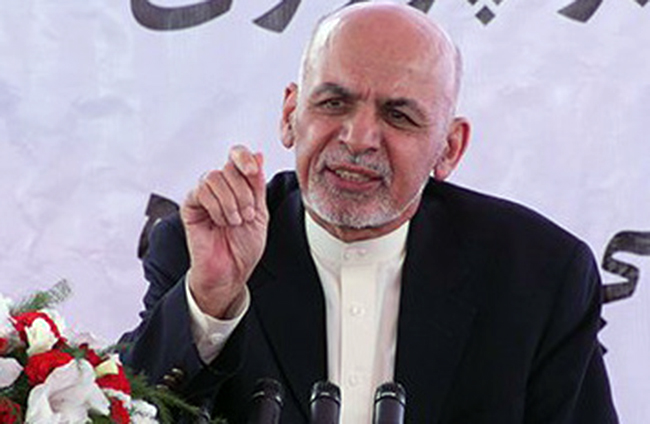The security situation has been deteriorated recently and the Taliban fighters gained upper hand in restive provinces. The escalated militancy has filled the air with a sense of fear and disappointment. Despite the high hopes for democracy and deeming election as a panacea for political problems, the security situation worsened and a large number of Afghan citizens took refuge to foreign countries to have their rights and liberty protected.
None of the mouth-watering promises of heads of National Unity Government (NUG) came to fruition. I remember vividly when President Ghani declared his agenda during his presidential campaigns which included: establishing good governance, combating corruption, building a government based on justice, building infrastructural structure for the better economy, giving participatory role to women and youngsters, combating violence, providing nationwide security, strengthening national solidarity and building a strong nation.
Good governance means that the graph of public satisfaction should be high and people’s fundamental rights to life, liberty and property are to be protected. An Afghan does not expect to live in a utopia, but get out of a dystopian society as it is stated in the preamble of the Constitution, “Form a civil society void of oppression, atrocity, discrimination as well as violence”. Moreover, it is said that the rift between the heads of NUG has affected the governance adversely within the past two years. The CEO’s office has said that the president’s disinterest in adhering to the agreement and in not consulting with his CEO over appointments of individuals to government bodies has significantly overshadowed their relations. The political agreement on the basis of which the NUG was formed stresses that the president and the chief executive should work together when making appointments in the legal, judicial and local government institutions so that they can keep a balance in the sharing of power.
To consider administrative corruption, the Transparency International watchdog group ranked Afghanistan 166th out of 168 nations in its annual corruption index this year. Subsequently, Ghani has recently said, “we promised that we would end the corruption that violates our deepest spiritual values and pollutes the soul of our nation,” adding that “there will be howls of protest and pain as the noose against corruption grows ever tighter.” A number of high-ranking officials are involved in corruption, based on SIGAR report. According to public belief, the election, held in 2014, was not transparent and the electoral system will be amended soon. Similarly, corruption is exercised in judicial system on a large scale and the equality before law is not put into practice. So, the level of corruptions remains as high as ever.
Regarding justice, people still rail against discriminatory acts of the officials and falling victim to injustice. Firstly, since corruption exists in government’s machinery, mainly in judicial system, the rule is not applied as strictly to the rich or influential individuals as it is to the poor. Secondly, the development programs are not applied equally in all provinces, especially in insecure ones. For instance, Bamyan residents believe that this province has been deprived of electricity and the development has been so slow. Therefore, they urge the government to route TUTAP power line – which would connect the energy-rich Central Asian nations of Turkmenistan, Uzbekistan and Tajikistan with Afghanistan and Pakistan – from Bamyan province, where some residents still live in caves. The line was originally set to pass through Bamyan but the government decided to reroute it through the mountainous Salang pass north of Kabul. A number of Hazara people staged peaceful demonstrations asking the passing of TUTAP from Bamyan but came under a deadly suicide bombings which left tens of individuals dead and many others wounded, including men, women and children.
The agenda for economic development went no more beyond a theory. In other words, the economic situation was worsened rather than booming. Scores of people suffer from unemployment and entrepreneurs and traders have no security. Therefore, NGOs and great investors left the country in the lurch and the economy was stagnated. Similarly, the workforce abandoned the country in mass and put the Afghanistan’s sovereignty under question.
Violence and bloodshed are on the rise and civilian casualties increase with each passing day. The UN said in its annual report on civilians in armed conflict that there were 11,002 civilian casualties in 2015 including 3,545 deaths, a four per cent rise over the previous high in 2014. One in every four casualties was a child, with the report documenting a 14 per cent increase in child casualties over the year.
Women also paid a heavy price, with a 37 per cent surge in female casualties. One in every ten casualties recorded was a woman, the report said. Moreover, domestic violence against women is also a serious challenge. They fall the victim of rape, honor-killings, and tortured mentally and physically in the worst possible way.
To consider the President’s agenda, none of his plans came to fruition within the two past years and the situation worsens politically and economically with each passing day. Hence, the challenges in the government machinery and the escalated militancy are the barriers before President’s agenda. To pave the way for his agenda, the government will have to implement the Constitution and it is not possible without rooting out the corruption.
Home » Opinion » The Futility of Presidential Agenda
The Futility of Presidential Agenda
| Hujjatullah Zia

